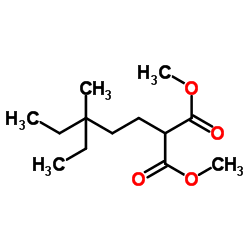Tenebrio molitor, commonly known as mealworms, can be fed with fermented materials. Among their primary food sources are crop stalks, such as corn stalks, corn cobs, bean stalks, rice straw, peanut vines, and peanut hulls. These plant residues are mainly composed of cellulose, hemicellulose, and lignin, along with smaller amounts of vitamins, pectin, and fats. However, cellulose and hemicellulose are challenging for most organisms to break down, which limits the nutritional value of these materials.
To address this issue, farmers can use biofermentation techniques to convert agricultural waste into more digestible and nutritious feed. One effective solution is Jinbao Special Biological Fermentation Agent, a microbial product designed to accelerate the decomposition of organic matter. This agent contains a blend of beneficial microorganisms, including bacteria, actinomycetes, fungi, and yeasts, carefully cultivated through advanced biotechnology.
The fermentation process helps break down complex carbohydrates like cellulose and hemicellulose into simpler sugars, making them more accessible to microorganisms. As a result, these microbes can synthesize amino acids and proteins, transforming the original crop residues into a nutrient-rich feed. This fermented material becomes an excellent source of crude protein, fat, and essential minerals, ideal for feeding mealworms.
By using this method, farmers not only reduce waste but also create a sustainable and cost-effective feed source. The improved efficiency in converting crop stalks into high-quality feed supports the aquaculture and livestock industries while promoting environmental sustainability. This innovative approach turns what was once considered waste into a valuable resource, benefiting both agriculture and the ecosystem.
solubility H2O: 50 mg/mL
form powder
color Dark cream powder
Odor Odorless
PH 6.5-7.5 (2% in H2O)
Water Solubility Soluble in water. Insoluble in alcohol.
Sensitive Moisture Sensitive & Hygroscopic
EPA Substance Registry System Peptones (73049-73-7)
Peptone Basic Information
CAS: 73049-73-7
MF: C13H24O4
MW: 244.32726
EINECS: 615-895-9
Mol File: 73049-73-7.mol
Peptone Structure

solubility H2O: 50 mg/mL
form powder
color Dark cream powder
Odor Odorless
PH 6.5-7.5 (2% in H2O)
Water Solubility Soluble in water. Insoluble in alcohol.
Sensitive Moisture Sensitive & Hygroscopic
EPA Substance Registry System Peptones (73049-73-7)
Peptone Water,Peptone Composition,Peptone Water Composition,Peptone Meaning,Peptone Water Preparation
Shandong YingLang Chemical Co.,Ltd , https://www.sdylhgtrade.com